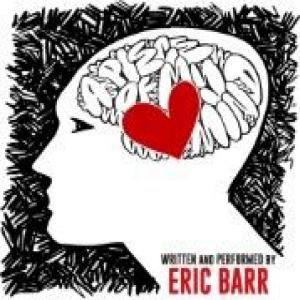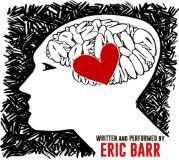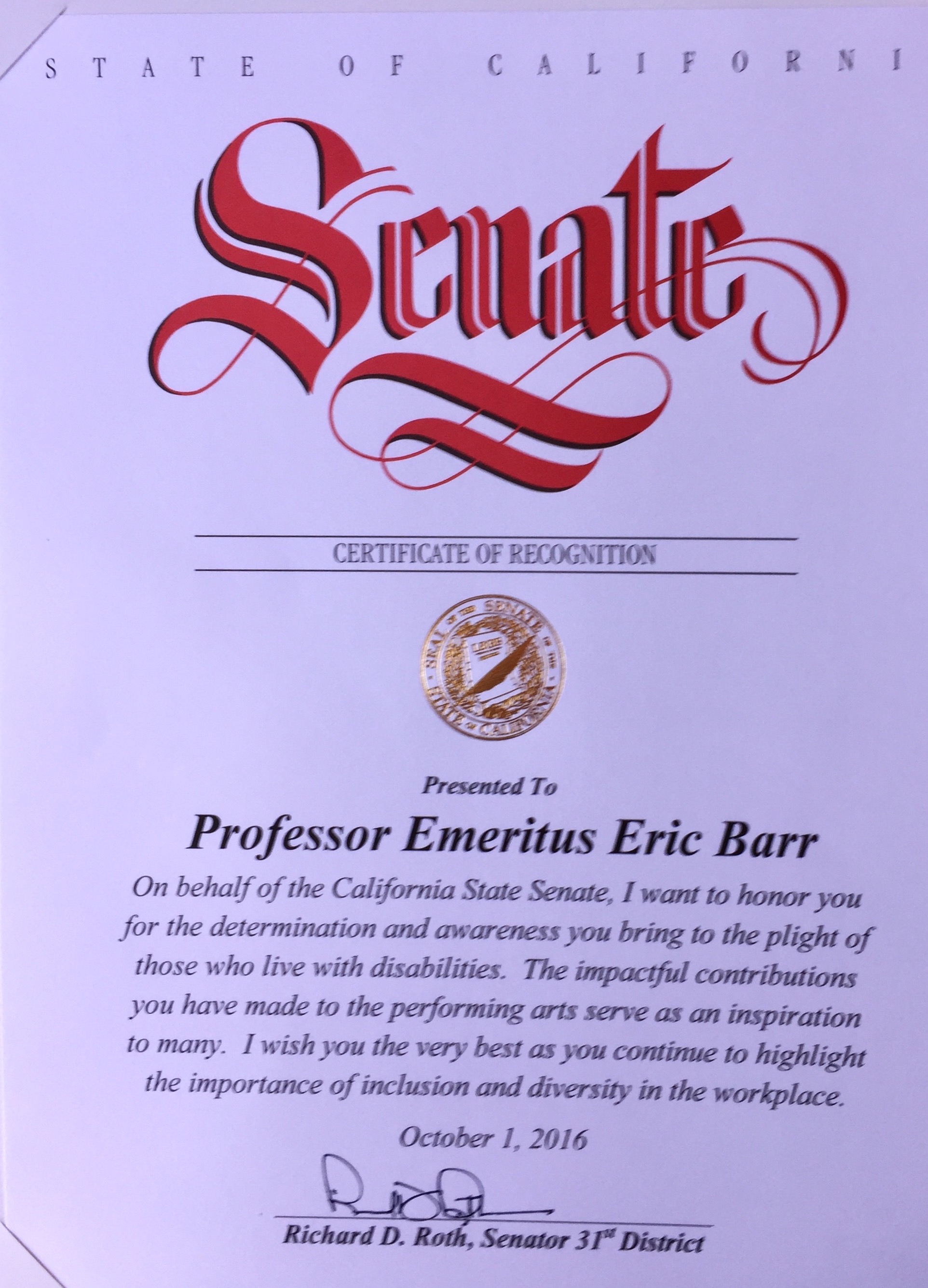Episodes

Sunday Jul 07, 2019
It Didn't Happen for a Reason
Sunday Jul 07, 2019
Sunday Jul 07, 2019
Illness is not a punishment, nor is it a test. Sometimes bad things just happen to good people.

Sunday Mar 11, 2018
Express yourself
Sunday Mar 11, 2018
Sunday Mar 11, 2018
In my younger days, I could not say “I Love You” to anyone -- not even to my parents. When I was a student in Paris, France, I couldn’t sign my letters to them, or to my girlfriend, “Love Eric”, I thought It might send the wrong message. In my 50’s I started to say I love you to my wife and I figured if I didn’t tell my parents or elderly aunts and uncles soon they might die before I told them. It was around that time that the post office came out with the LOVE stamps with the hearts. I certainly could not put them on an envelope to anyone I knew -- that was far too much of a commitment. And I could not use them to pay my bills for fear that my creditors would get the wrong idea and send me more bills.
At 62 I had open heart surgery. My heart became infected and the infection caused a series of strokes resulting in a second surgery. After that brush with death I figured I better tell people I loved them because I could be gone the next day and not able to let them know how I felt. This was a great weight off my chest because I actually wanted to let people know how I felt about them. But using the word love felt too strong and too long-term. The word is loaded and not just for me — if I told a female friend, “I love you,” she’d think I was trying to reset the relationship. And there is a lot of wiggle room between loving corned beef and another person -- the concept just confused me.
And it wasn’t just about signing letters. I couldn’t hug people — you know just a hug nothing sexual. For years my wife and I celebrated new Year’s eve with the same people. Midnight would roll around and everyone would hug each other — and I’d stand there with my hand out waiting to shake hands. Hugging was too much even with close friends. A good handshake could say as much. My friends always gave trouble about this, but I didn’t care. I saw no reason to hug someone else’s wife or husband.
Clearly, the holiday season was the toughest time of the year for me. Christmas and new year’s cards would pile up on the dining room table. Eventually I felt I had to go out buy cards and respond to my friends and colleagues. But how do you sign those cards — I couldn’t sign,” love, Eric” to my work colleagues. I liked them, but did not love them. And signing “Like, Eric “seemed stupid and I ruined many cards trying to make that salutation work. And that X O X thing never worked for me, it was virtual before virtual was a thing. What was a heartless person to do? And of course by the time I got to the post office the only stamps left were the damned love stamps; no currier & Ives, no puppies, no flags ( which I found a bit too jingoistic to use.)so I couldn’t mail the cards which was okay because I could never sign them.
Now since I am years past my strokes and miraculously still alive — I want to tell people how I feel. I say “I love you” to friends, colleagues and acquaintances. I have been known to say it, to the lady at the doughnut shop, to the pharmacist and to strangers. And now like Leo Buscaglia( who in the19 90’s was the guru of hugging) I hug consenting adults and insist that the post mistress, in our neighborhood post office order more love stamps.
So tell people how you feel while you can and while they are still around.
Love,
Eric

Wednesday Aug 30, 2017
time Flies When You've Had A Stroke
Wednesday Aug 30, 2017
Wednesday Aug 30, 2017
The other day I was talking to my uncle, who will soon be turning 90.
He said, “I've been thinking about you a lot lately, the older I get and the more limitations I discover I have,
“I think of you.” he continued, “ I've grown into my limitations as I've aged.
BUT YOUR STROKE created limitations for you and they hit you, all at once.”
I had never thought of having a stroke like that but I realized he was right. It was as if, in some ways, I had become an elderly person overnight.Or at least a more frail person.
The good news is that many older people live full rich, productive lives.
So while all of us are going to go through changes as we age and deal with health challenges. These changes are not necessarily limitations.
They may affect how and what we do.
But, some people adapt to these changes by making adjustments so they can keep doing the things that they love.
This means that we have choices.
As Stroke Survivors, we can stay in bed with our heads under the covers
or we can find ways to do some of the things we did before our strokes.
We may not be able to do them as easily as we did before or
as well. But if we follow our passions to do the things that are important to us we can find ways around the changes.
So don’t call the changes to your mind and body limitations. Because they may not limit you in any way.
And they may actually enable to discover new strengths and interests
What, may at first, seem like limitations might actually make you a better and more complete version of yourself. If we follow our passions to do the things that are important to us we can find ways around the changes.
As Philosopher Marcus Aurelius said in his meditations 4.49
Don’t say,
‘It is my bad luck that this has happened to me.’
No, you should rather say:
‘It is my good luck that, although this has happened to me, I can bear it without pain, neither crushed by the present nor fearful of the future.’
Because such a thing could have happened to any person,
but not everyone could have borne it without pain.
So why see more misfortune in the event than good fortune in your ability to bear it? ...So in all future events which might induce sadness remember to call on this principle: ‘this is no misfortune, but to bear it true to yourself is good fortune.’
So. Adapt, hang tough, and do what you love.

Tuesday Feb 14, 2017
Staying upbeat
Tuesday Feb 14, 2017
Tuesday Feb 14, 2017
The stroke recovery process is long and arduous and while depression and sadness are appropriate emotions to feel post stroke, they do not help motivate and energize us for the marathon type of endurance required to get through the rehab process. From my experience and from talking with other stroke survivors -- Staying upbeat and seeing the positive aspects of recovery is a much better approach and one that will help you to keep working when your mind body and spirit are tired and ready to quit
I was recently reading Oliver sacks’ book “GRATITUDE,” AndI I realized that I was ignoring the positive things in my life and dwelling on the negative.
So I have begun keeping a daily list of things I am grateful for.
(to get myself to notice the positive everyday things that I usually overlook)
the items on my list can be as simple as nice weather -- or a sentence I have written that captures my thought.
Basic things that when added together,
help me to see the light, and give me the strength to carry on.
The other thing I am doing to keep my spirits up is trying to be much more self -forgiving.
If I can’t do an exercise
or if I feel bad
I tend to be hard on myself and demand more, but now I am trying to cut myself some slack and acknowledge how I feel and see what I have actually accomplished.
So if I can recommend any techniques for staying upbeat.
I would suggest that you
keep a daily list of things you are grateful for and that you develop some self compassion--
treat yourself the way you would treat a friend. Forgive yourself for setbacks and slow improvement. Don’t beat yourself up because things aren’t working the way you want them to.
If you find your strength and support in god, then connect to your god -- there is great power in belief and prayer- and while I was not raised in that tradition and do not have a connection to a divine being -- I encourage you to use whatever works for you to stay positive about where you are in your life and recovery.
In an essay written just weeks before his death when he was quite ill, neurologist Oliver Sacks,Wrote
“ I cannot pretend I am without fear.
But my predominant feeling is one of gratitude.
I have loved and been loved I've been given much and I've given something in return ;I have read and traveled and thought and written. I have had an intercourse with the world and the special intercourse of writers and readers.
Above all I have been a sentient being, a thinking animal on this beautiful planet and that in itself has been an enormous privilege and adventure.”
Why does it take us so long to be grateful for what we have --
especially if it is not what we used to have?
Heed Dr. Saks’ words. Despite our challenges, we are all sentient thinking animals on this beautiful planet. And that is reason enough to keep on going.

Tuesday Oct 11, 2016
I AM STILL ME
Tuesday Oct 11, 2016
Tuesday Oct 11, 2016
Early in my stroke recovery, I thought I had disappeared and that the person I had been was gone forever. I thought that the future I had imagined for myself was an impossible dream that was gone with the person I had been.
I am now three years post-stroke and I now believe that I am still the person I was before my stroke perhaps an even more complete version of myself. I have become much stronger and a more empathetic person than I was before my stroke. I may not be able to run or ride my bicycle—
But I still enjoy the people and things I enjoyed before my stroke. I am lucky I can still read and write and speak. I try to judge who I am by what I am capable of rather than what I still can’t do.
And I encourage you to see that despite the challenges you now face, you are still the same essential you, you were before your stroke or TBI. There may be new flaws and limitations—but regardless of our health we All have flaws, that’s part of being human.
My name is Eric Barr and I hope you will join me next month for more notes on strokes. Until then, keep moving and enjoying each day.

Tuesday Jul 12, 2016
face the fear
Tuesday Jul 12, 2016
Tuesday Jul 12, 2016
a few weeks ago, on a Sunday morning as I was lying in bed, I rolled my eyes around looking for the dogs and my eyes got stuck looking up and they would not come down, suddenly my left arm and leg, which were paralyzed in my stroke 3 years earlier began flailing around and a primitive cry came out of my mouth. I could not stop the flailing or the screaming. Was I having another Stroke? I didn’t know. but the medical personnel in the ambulance called it a focal seizure meaning that it was localized to one part of my brain. I was rushed to the hospital and was happy to learn that I did not have another stroke or any new bleeding in my brain. But I had had a seizure. A couple of weeks later I asked my neurologist about the event and he said the scar tissue in left in my brain by the stroke made me susceptible to seizures.
Why has no one ever mentioned this? I asked.
We didn’t want to scare you, he replied.
I quickly decided that the seizure was caused by rolling my eyes around instead of turning my head, so if I didn’t move my eyes I wouldn’t have another seizure. This was the same logic that told me since I had my first two strokes after getting up to go to the bathroom , that never going to the bathroom again would prevent any future strokes. That strategy worked for about a day but obviously I couldn’t stop my natural bodily processes even if my fear that going to the bathroom would cause another stroke.
Likewise I can’t stop moving my eyes when I look around just because I worry that might cause a seizure. While I think my fears are real (strokes and seizures are scary) I have to live my life as normally as I can without doing obviously foolish or dangerous things. life is filled with dangers expected and unexpected but that can’t be a reason for me to stay in bed and under the covers for the rest of my life
Even though Fear is a legitimate emotion, we can’t let it be the ruling force in our lives. So accept your realistic fears, act on them, face them, then get on with your life, I promise I will. In fact, on August 15th I will be taking my show A Piece Of My Mind on the road to Idyllwild CA. Come to the mountains and see us. http://idyllwildactorstheatre.com/2016season.html

Tuesday Apr 05, 2016
podcast 5 when recovery slows down
Tuesday Apr 05, 2016
Tuesday Apr 05, 2016
I am three years post stroke
and all the therapists toldme that over time my recovery would slow down.
They weren’t trying to be negative, they just wanted me to understand the ups and downs of the recovery process so I would not get disappointed.
In the early days it seemed like I made advances everyday(of course At that time, I could barely sit up or swallow so every small step seemed like a major achievement, and it was.) and they were working with me many hours a day in the acute rehab center.
In the past three years I have done a number of things that I thought were no longer possible—like getting back onstage even getting back in the saddle and riding my horse.
In fact, in some ways. I think I was seduced into complacency by my own successes and stopped pushing myself. When I have failed at accomplishing something, I get frustrated and work harder
But succeeding is a little trickier to overcome because I have done what I set out to do so why work harder. But the other day I realized that, I was no longer moving forward or doing new or more difficult things,
And this made me feel bad like I have plateaued and am now stuck where I am in my recovery.
But I know there is more I want to do. And more Ican do.
Additionally, my therapy has run out and I am now left to my own devices, without a therapist to push me or guide me
So the Question is: how Do I reinvigorate and re-motivate myself to keep moving forward?
This is my own problem and I need to find the solution.
I know that to move forward I must set up new tasks and goals for myself. And I need to set up a daily schedule of things I want to accomplish and stick to it. Only in this way can I move forward and continue to improve . if you are inNorthern California please join us on May 20 when I will be performing my show “APiece Of My Mind for the Pacific Stroke Association’s annual stroke conference in Mountainview CA. for information goto: http://pacificstrokeassociation.org/index.php/events/stroke-conference

Thursday Mar 17, 2016
When Your Care Giver Stops Caring
Thursday Mar 17, 2016
Thursday Mar 17, 2016
For the past three years, my recovery has been the focus of health in our house. Then two months ago, it was essential that my wife have knee replacement surgery. suddenly our roles were reversed. I became her care-giver and support system, even though I was not fully up to the challenge. she had been my champion, companion, and advocate for three years and it was my pleasure to do the same for her but since my capabilities were seriously compromised, there were many things I could not do for her....and this made me feel terrible and guilty. I felt helpless and hopeless and this made me angry and unpleasant which only made matters worse. What I have to remind myself is that I am doing everything I can for her despite the fact that my abilities have been compromised and doing all I could I discovered that I was capable of far more than I thought I was.

Friday Jan 08, 2016
podcast #3 January8, 2016 Staying Upbeat And Living Fully Post -Stroke
Friday Jan 08, 2016
Friday Jan 08, 2016
Recently I was asked, “how does a stroke survivor
stay in or return to a place of new beginnings and pleasant possibilities?” One that is not just doom- and- gloom even though we know that doom- and- gloom are also necessary parts of the healing process.
My answer to this difficult question was that a few months after after my stoke, when,
I was back home and the pain and spasticity in my left arm and leg had diminished enough, that I could get around.
My wife and I Had a serious conversation about our new lives, together we decided that it was important for me to start doing the things I did before my stroke as soon as possible If only to prove to myself
that I could still do them.
So for me it was not so much about
getting to a particular mental place of positive thinking with the mantra “I can Do anything”.
As much as it was picking particular activities
that I wanted to do
and trying to do them one by one.
( which meant thinking through them carefully and working out adjustments and accommodations that would help me to accomplish the chosen tasks.)
We went out to dinner,
after carefully picking a restaurant that was set up for easy accessibility
Then We tried to go to a movie and again after picking a theatre that I could get into and out of despite my problem walking and climbing stairs. This was less successful than dinner. As I had trouble sitting through the entire movie.
This inability to sit for long periods made me think that traveling would be impossible for me.
I could not sit through a cross country flight back to see my family.
And how could I possibly get to the bathroom
in the airplane
and use it.
Then my mother died unexpectedly. And I had to get home for the funeral.
It was no longer a question, can I do this?
The question became what do I need to do to make this happen
?(not going was not an option for me.)
When I complained about not being able to hike up into the mountains around our house.
My wife suggested that I should ride one of our horses into the mountains and let the horse do the walking.
I thought this was crazy, but the more I thought about it, the more I wanted to do it.
If only to prove to myself that I could.
We slowly figured out how to get me onto the horse and we started by riding for a few minutes daily until I could ride for almost an hour.
The first ride into the mountains was difficult and my left side got so weak that coming home I was leaning off the side of the horse like I was drunk
So my recommendation for you, if you have have had a stroke or TBI
Is to decide what you want to do
what things did you love and now miss doing? Pick something important to you then carefully figure out how to approach it safely.
Because nothing will mess up your recovery worse than an injury
Work slowly and carefully to figure out what kinds of accommodations and adjustments you need to make to achieve this goal.
Some things will work and others will not. Patience and perseverance must become your friends.
I am still not able to run…. But I am not letting that set-back define who I am.
Or letting it stop me from doing other things I want to do
Thanks for listening.
My name is Eric Barr and I hope you will join me next month for more notes on strokes.
Until then
no matter how much you want to lay in bed under the covers (the place I was and still am most comfortable) I urge you to get up and do the things you enjoy and live your live fully
See your friends, Enjoy your life. Make some noise.
Remember as long as you are breathing
There is more right with you than wrong with you.

Wednesday Oct 07, 2015
podcast #2 october 6: Relearning to Run, the first steps
Wednesday Oct 07, 2015
Wednesday Oct 07, 2015
I April 2013, I had a stroke to the right side of my brain, that paralyzed the left side of my body. That was over two years ago. About six weeks ago physical therapist asked me what goals I wanted to work on. I said, "I want to run again ( I had been a runner prior to my stroke) and I want to be able to run again." so we went outside to do some basic exercises to get my arms and legs moving in a running tempo and rhythm. I quickly found the exercises to be very frustrating because I could not do them. while I would like to blame my frustration on my stroke, knowing myself, I know that the frustration was the result of my own unwillingness to be a beginner.
you have to start somewhere when you are learning something new. And for stroke survivors, relearning to do something you didbefore can be like starting over and as frustrating as that can be -- it is no reason to quit. While my running therapy session was frustrating , it was fun and the start of a process that isi I am sure will get me back on the running trails if I am willing to put in the time and the effort. things that matter take time to learn or relearn but they are worth the time.

